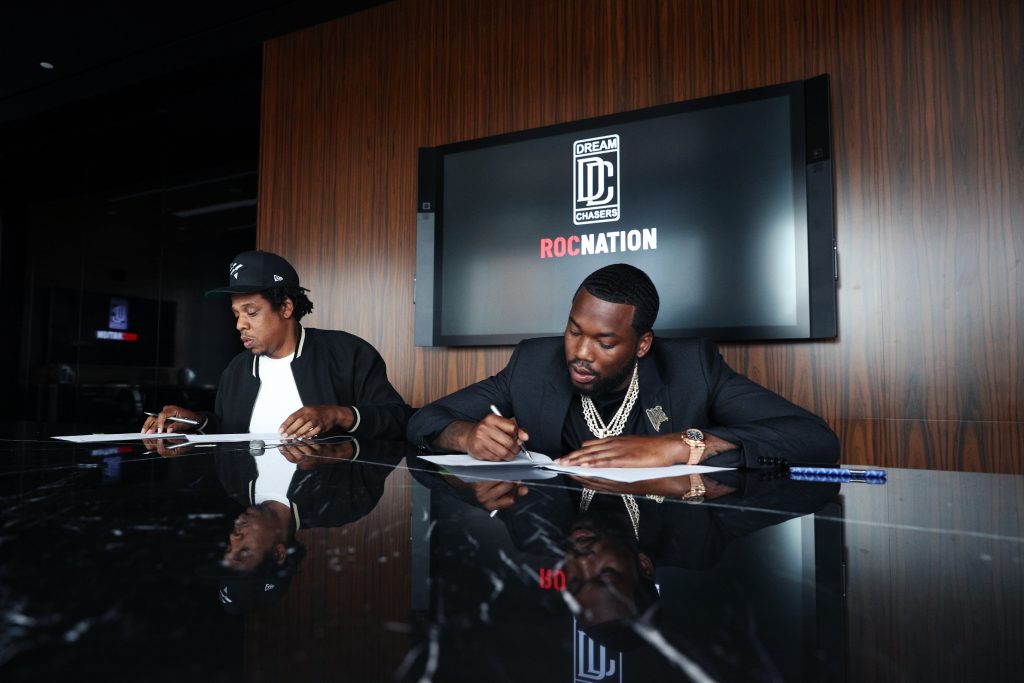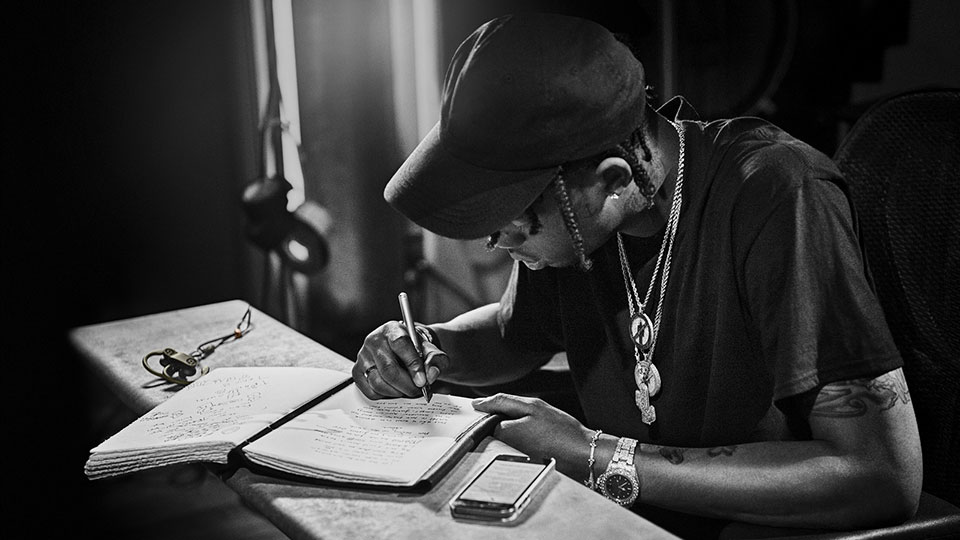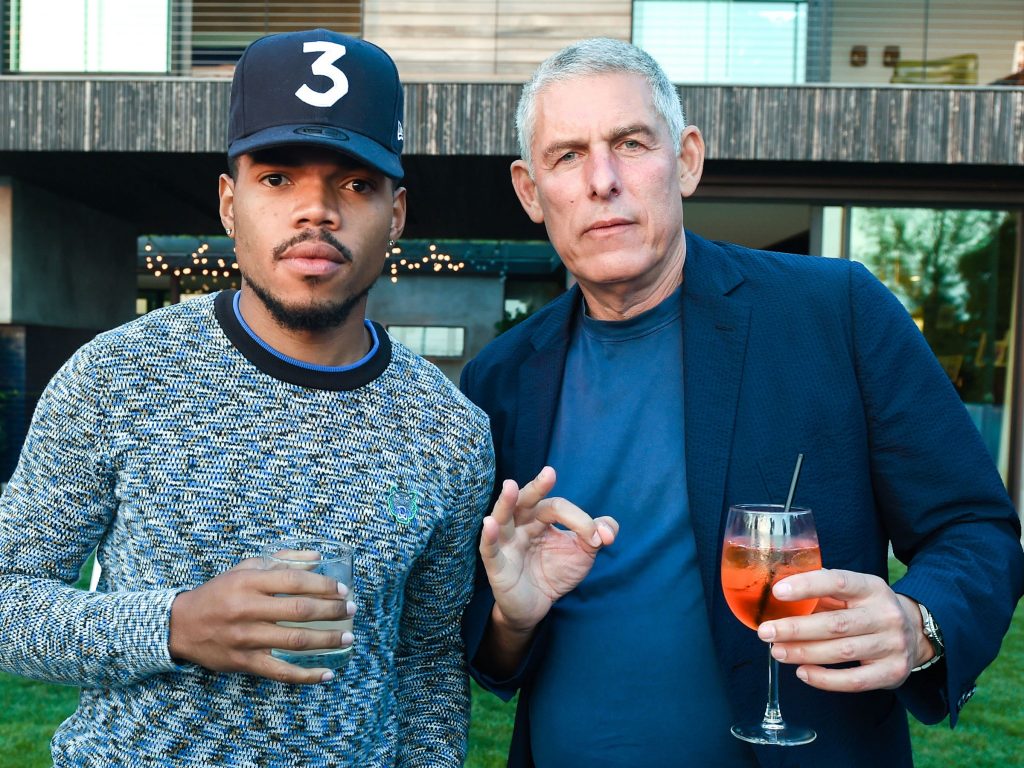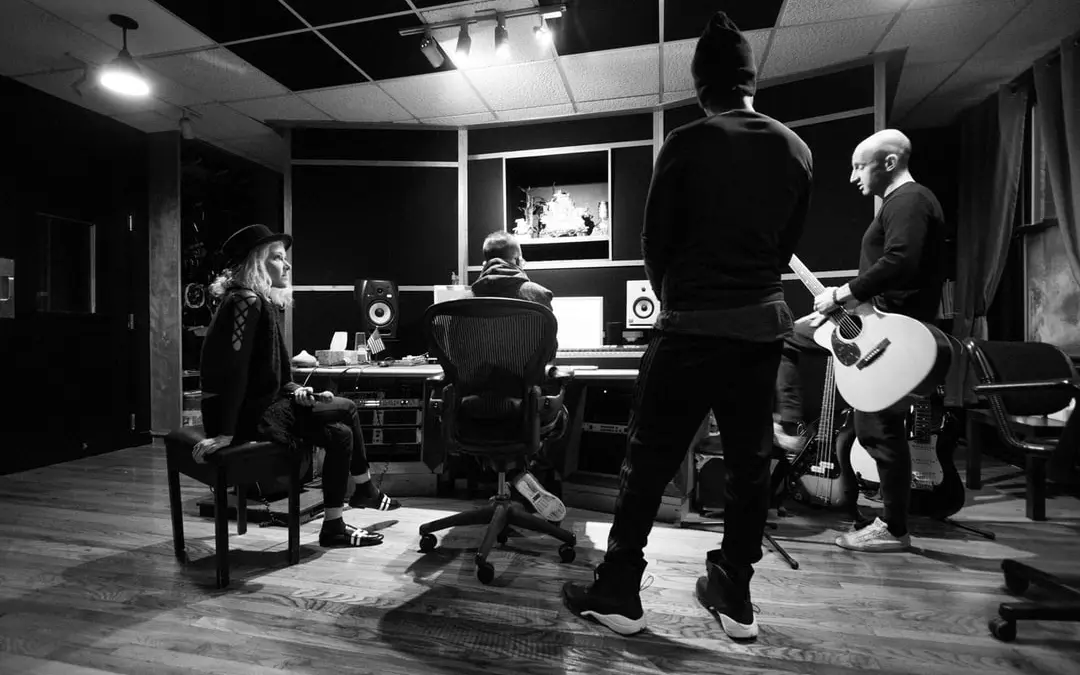It’s a question that every singer-songwriter asks: “How can I get signed for a record deal?” The answer? It depends on who you ask.
Some people might say that the best way to get signed is to have an established fan base and sell out your shows, while others will say it’s all about getting a strong manager and playing some showcase gigs where the right A&R reps might be there.
In reality, it’s much more complicated than that: there are many factors involved in whether or not you’ll finally be offered the opportunity to sign those papers.
Major Record Labels are largely run by Executives; however, every label will have different people who are in charge of various departments. The following is how the process works:
The A&R Executive handles artistic control for the label as well as representing the record label in business relationships. They decide what songs will be recorded and when they’ll be released to radio and TV.
The A&R Exec often works closely with the promotion department (AKA “Promo”), which is always looking to sign new artists, develop new acts, and devise effective marketing strategies.
Making Sense of Record Deals
Record deals can range from 6 months to 10 years. The terms depend on the deal and the artist. You will be offered a deal that has terms to it. You must decide what you need and be able to negotiate for the best price. However, you don’t have to accept the first deal that comes your way.
Also, don’t feel pressured into accepting a deal. If you don’t like the proposed record deal, then turn it down and keep on writing songs and making music until you find the right fit for yourself.
Now that you know what a deal entails, what do the terms of a deal mean, and how can you ensure that your music career is successful? If you’re looking to get signed, you’ve found the right place. There are 3 types of deals that major labels extend to artists: single deals; multiple deals; and exclusive deals.
Basically, a single deal allows the record label to select a number of songs from your demo or CD for which they will make a commitment to release on a certain timetable as singles.
A multiple deals is like a single deal, except it allows more than one song to be released at the same time. A “true” exclusive deal will consist of an artist being signed to a full-length record deal on any label that A&R Execs at that label choose.
Some artists with exclusive deals may be left without any significant record label representation and have to find a manager themselves due to the nature of the agreement.
A “true” exclusive deal will consist of an artist being signed to a full-length record deal on any label that A&R Execs at that label choose. Some artists with exclusive deals may be left without any significant record label representation and have to find a manager themselves due to the nature of the agreement.

(JAY-Z, Meek Mill/ Getty Images)
Record Deal the Easy Way
If you’re just starting out on your music career, the easiest way is to get a band together, put together a demo and go indie. You could also find a local promoter that would be willing to book you and take it from there. The better your reputation, the better deals you will receive.
Record Deals the Hard Way
If you’ve already built up some credibility but still want to get signed, then do something that makes money.
A record deal is a contract between recording artists and a record label. The deal goes into effect when the artist records more songs for the label.
Record deals can be in either a personal or group setting. Depending on which type of deal the artist has signed will also determine what percentage of sales he or she will receive.
For example, if the artist were to sell 1 million copies of his or her album he/she would get 20-25% on a solo album, but on a group setting they would get 15% because there is more than 1 member selling albums and therefore splitting the money generated by album sales.
There are two kinds of record deals: single deals and multiple (or record) deals”.
Record Deals for Songwriters
If you’re a songwriter, your record label is the company that signs you to a record deal. However, there are times when some songwriters will choose to go solo or even group setting. The most common type of career for songwriters is to have an individual agreement with an A&R Executive at that label.
It’s not uncommon for songwriters to have one-year contracts because the length of time it takes to produce an album can vary widely depending on the amount of work involved.
There are two different ways that a record deal can be set up for songwriters.
- Some record labels will sign with a standard agreement and offer an option for the artist to sign at a later date.
- A music publishing deal is when a songwriter has some of his or her original songs published by the record label through a publisher.
This is similar to how most people get signed when they’re with a manager. The artist doesn’t go through the process of getting signed at that moment, but instead, he or she signs an agreement with the label that gives them or the option to further explore his or her music career.
When it comes to publishing, even if an artist has his or her songs published by a publishing company, he or she is still required to sign with that record label in order to release his or her music and make a living.
It’s important that you know that signing with a record label doesn’t mean you’re going to be famous, rich, and backed by big-time sponsors. Keep in mind that artists will not be able to go solo until they’ve built up some credibility as an artist and have a strong enough fan base.
The Music Comes First
First and foremost before anything the music comes first. Without good music, no matter what genre, you’ll have a hard time getting signed. The music has to be strong so that the record label executives will want to pick it up. If you’re well-respected in your local area as a musician or songwriter, they might take notice of your work and offer you an option for recording.
Make sure you keep up with your craft and keep working hard. This industry is about creating new things, not just doing the same thing over and over again. You must stay on top of things and cultivate yourself as an artist in order to stand out from the crowd.

(Travis Scott writing lyrics/ Instagram)
Your management will work with the record label to find out what they’re looking for in terms of music. As a songwriter, you need to know which music is the type of thing that the record label needs and wants. You need to learn what it’s like working in a business environment.
You might join a local group called “Songwriters Club” and see how many people have recorded their own songs with A&R Executives in mind.
Release music regularly. Popular rapper, singer, and songwriter Russ is credited with saying “If you’re not putting out three songs a year, you’re not doing it correctly.”
The record label executives will be looking for some good music, and you can use them to get your music heard.
Your music must be good, it doesn’t matter how big your Facebook or Twitter following is. It doesn’t matter how many times you’ve had your music featured in the local newspaper or on other websites. And it doesn’t matter if you’ve sold a few hundred thousand downloads of your own original music online.
Record label executives will only make deals with people that have good-quality music. That’s why you need to invest in a professional recording studio and have someone mix and master your music for the best possible sound quality.
Build a Buzz Around Your Name
After you’ve written your music, you have to decide where to post it online. Make sure you keep good profiles on different social networking sites such as Facebook and Twitter. Record label A&R Executives will look for new artists that they can sign on social media sites.
Encourage your friends and fans to like and share your content. Post up videos of you playing or singing songs online as well.
To further develop your online fan base, make sure you have your own website. It doesn’t matter if it’s free or paid, it must be professional looking. It should showcase your music and having a “Where Are They Now” section is important. This will allow people to see where your music went after it became popular and might spur interest in the record label executives to sign you.
It’s important to start performing live. You should have a lot of online fans and have your music played in several clubs and bars in your area. It doesn’t matter if you’re playing for free or being paid to play, it’s about getting the exposure that will get you noticed by a record label executive.
Practice and rehearse songs that people want to hear. Learn how to play cover songs as well as your own original music so that people will enjoy your performances.
Learn the crowd’s reaction so that you can make sure they’re satisfied with what they hear at your performances.
Getting shows and performances isn’t difficult. You can set up your own gigs by contacting local bars and clubs and offer to perform for free. This way you can get the attention of the venue owners and they might eventually pay you to play.
You can also do this by doing your own online video performances and posting it on YouTube, Facebook, Twitter, etc.. And if you’re really serious about becoming a professional musical artist, you will need to focus on getting your music re-posted online too.
This is important because popular music websites like MySpace and Facebook are not going to regularly put your music on their site. You need to have a website where people can easily post your music. This will make it easier for people to find your music, instead of finding it by searching through cluttered social network profiles.
You might also want to consider paying for some professional online promotion and getting endorsements.
When you start to do shows, it is a great way to kick off networking. Networking will get you one step closer to getting recognized by a Major Label.
Networking for Musicians
Networking is something you cannot afford to skip. It’s one of the most important parts of being signed as an artist and that’s why you must network. You will need to network with A&R Executives, assistants, booking agents, web planners, coordinators and other artists.
Networking is where you can meet potential fans, record executives and other successful recording artists in your field who can become your mentor and help guide you through the industry.
Already having a degree helps a lot when you’re networking because people will respect you more if they know that you are educated about what it takes to be successful in music.
When you network, you can have your music played on different stations and platforms. For example, as an A&R Executive for a record company, you might have a monthly playlist that goes all year round of up-and-coming artists who you think deserve to be signed.
In addition, A&R Executives can help you with your career by playing your songs during radio interviews for the upcoming months to get more recognition from the public.
The organization that oversees all of the recordings within a country or region is known as The Association of British Recording Developers (ABRD). It is a not-for-profit organization run by an independent Trustee Board.

(Chance The Rapper and Record Executive Lyor Cohen/ Getty Images)
The different places you can network in the music industry include :
- A&R executives are the people who sign the artists. Make sure you get around them. They’re the ones who are responsible for deciding what is going to be released by a record label in the future. A&R Executives also decide which artists to sign as well, depending on what type of music they want to put out into the industry.
- A manager is someone who looks after the artist. They look after all the details, from arranging press releases to paying for things like video shoots and expensive recording studios. A manager can also be seen as a surrogate father or mother to the artist.
- A booking agent gets the artist booked for on-stage performances, radio interviews, and television events. This promotion helps in getting their music heard by a wider audience, as well as getting paid for their services.
- Studios are a great place to network as recording artists, as they play many different roles. Studios may have engineers, producers, and engineers who work on recording sessions for future releases. Studios also have in-house video editors and designers who help record their own albums. They can also be a great place to showcase your songs by having them remixed and mastered by professionals.
- Web developers are people who specialize in the design aspect of the music industry. These people create websites, social network pages or promotional tools for people to promote themselves online.
A web planner usually designs websites and also makes social networking sites for the artist. They’re the ones who make sure that the artist’s website stays up-to-date with recent news about them and their activities.
A record label can be a very competitive place to be signed to because they’re usually willing to sign as many artists as possible in order to make as much money for their company or corporation.
When You’re Presented with a Contract
To sign with a record label, you’ll need to sign a record deal. When you’re signing with a major, the contract will be sent to you for your review and signature. You can either work with an entertainment lawyer or choose to sign it without legal advice.
Some contracts are complicated and all of the particulars within them can be confusing. Find someone who is knowledgeable in these matters if this is something that you are not familiar with.
Under the terms of your contract, you’ll receive a copy of it for your records and legal files. If there are any adjustments, amendments or alterations to your contract you will be made aware of them in advance.
In an agreement, the record companies are usually legally obligated to disclose all details pertaining to the recording procedure and recording costs. This is one way to ensure that all details are made completely clear so there is no room for misunderstanding.
Getting signed to record labels is an expensive process and requires a lot of work. You need to be prepared for this before you attempt it. You need to prepare the following things before you can ask for a record deal:
- Having your songs professionally mastered by those professionals who know how to perfect your recordings.
- Having a professional website created for your music, featuring your bio and songs.
- Getting endorsement deals from a recording company to help market your music.
- Networking with people who are in the industry such as A&R Executives, booking agents, web planners, and coordinators.
When you get the opportunity for a record deal, make sure that you give it your all. You must be ready to put some time into promoting your music and touring across the country. You will need to perform in front of audiences with people who are looking forward to hearing you perform.
To promote on radio stations, A&R Executives usually make weekly playlists for upcoming artists to get some exposure. In order to do this, they’ll be asking their staff if they have any new upcoming artists that they could add into their favorite playlist.
Conclusion
Hopefully, you now know more about how to get signed to a record label. Becoming signed to a record label is an opportunity to get your music out there and make it heard by millions.
In order to be signed to a record label, you will need to make sure your music is on a professional level, in terms of its sound, lyrics, and production. You also need to market yourself by getting social networking sites such as Twitter, Facebook, and MySpace made. Make sure that you have endorsements from other recording artists for any of the above that can help with your career.
Getting signed is only the first step, next you need to make sure that your music is sold consistently and marketed successfully.
Don’t expect overnight success; take your time to build a fan base and establish yourself as a recording artist.
Check out: The Role of Music in Advertising






